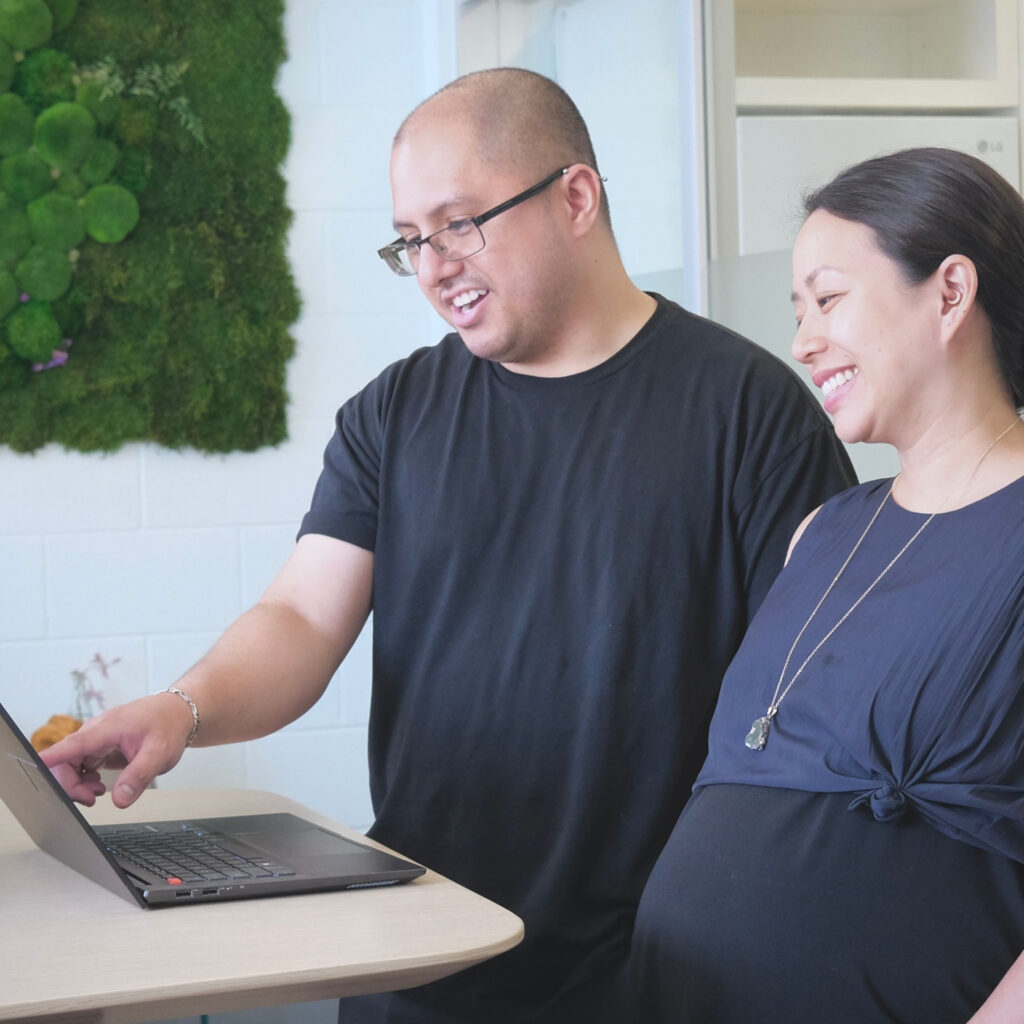Balancing lab and family: How the Acceleration Consortium’s Caregiver Grant is changing the game
Innovative funding aims to reduce career disruptions for academics providing family care

In 2022, Statistics Canada reported that 15 million Canadians were providing paid or unpaid care to children or adults with long-term conditions or disabilities. These responsibilities often require caregivers to adjust their work schedules, reduce hours, or scale back responsibilities. Principal investigators in academic settings who are caregivers also face the additional challenge of having to maintain their research labs when they take caregiving leave.
“Caregivers shouldn’t have to choose between taking care of their loved ones and advancing their careers,” said Dr. Helen Tran, assistant professor in the Department of Chemistry at the University of Toronto and inaugural recipient of the Acceleration Consortium’s Caregiver Grant. “This grant alleviates the burden on principal investigators to continually raise funds while on leave. This way, energy can be directed towards maintaining research progress, mentorship and lab operations.”
First of its kind globally
The Acceleration Consortium (AC) Caregiver Grant is one of the first of its kind globally, providing research funding support to associate and assistant professors who are AC members with caregiving responsibilities. The grant, valued at up to $90,000 for one year, helps maintain research group productivity during caregiving leave by funding support roles such as research associates, post-doctoral fellows and lab managers or funding associated lab operations.
The grant also ensures continuity for research teams.
“My students will continue their work even while I’m on leave,” Dr. Tran noted. “The Caregiver Grant enabled me to hire a post-doc, who I otherwise would not have had funding to hire, who will mentor my students and oversee their progress. This support was crucial for my group, especially as a new assistant professor establishing my research program.”

